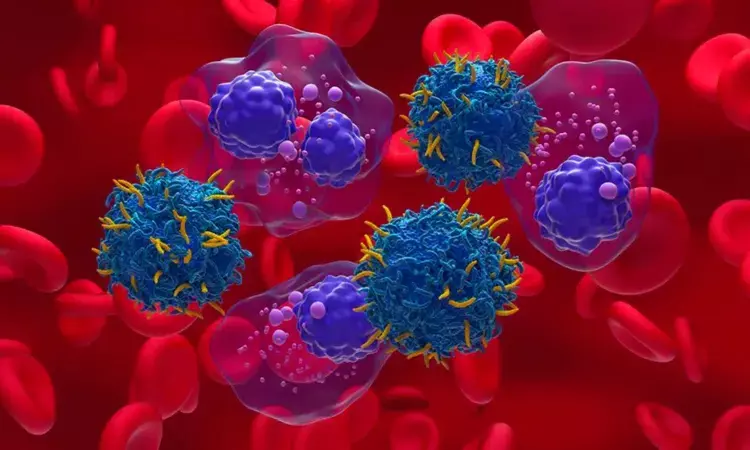- Home
- Medical news & Guidelines
- Anesthesiology
- Cardiology and CTVS
- Critical Care
- Dentistry
- Dermatology
- Diabetes and Endocrinology
- ENT
- Gastroenterology
- Medicine
- Nephrology
- Neurology
- Obstretics-Gynaecology
- Oncology
- Ophthalmology
- Orthopaedics
- Pediatrics-Neonatology
- Psychiatry
- Pulmonology
- Radiology
- Surgery
- Urology
- Laboratory Medicine
- Diet
- Nursing
- Paramedical
- Physiotherapy
- Health news
- Fact Check
- Bone Health Fact Check
- Brain Health Fact Check
- Cancer Related Fact Check
- Child Care Fact Check
- Dental and oral health fact check
- Diabetes and metabolic health fact check
- Diet and Nutrition Fact Check
- Eye and ENT Care Fact Check
- Fitness fact check
- Gut health fact check
- Heart health fact check
- Kidney health fact check
- Medical education fact check
- Men's health fact check
- Respiratory fact check
- Skin and hair care fact check
- Vaccine and Immunization fact check
- Women's health fact check
- AYUSH
- State News
- Andaman and Nicobar Islands
- Andhra Pradesh
- Arunachal Pradesh
- Assam
- Bihar
- Chandigarh
- Chattisgarh
- Dadra and Nagar Haveli
- Daman and Diu
- Delhi
- Goa
- Gujarat
- Haryana
- Himachal Pradesh
- Jammu & Kashmir
- Jharkhand
- Karnataka
- Kerala
- Ladakh
- Lakshadweep
- Madhya Pradesh
- Maharashtra
- Manipur
- Meghalaya
- Mizoram
- Nagaland
- Odisha
- Puducherry
- Punjab
- Rajasthan
- Sikkim
- Tamil Nadu
- Telangana
- Tripura
- Uttar Pradesh
- Uttrakhand
- West Bengal
- Medical Education
- Industry
GLP-1 Receptor Agonists Use Linked to Lower Cardiovascular Risk in Diabetic Patients with MGUS: Study

USA: A recent study published in JAMA Network Open has found that the use of glucagon-like peptide-1 (GLP-1) receptor agonists may offer significant protective benefits against major cardiovascular and renal complications in patients with both type 2 diabetes and monoclonal gammopathy of undetermined significance (MGUS).
Led by Dr. Kuan-Yu Chi of the Jacobi Medical Center at Albert Einstein College of Medicine, the research highlights the potential of GLP-1 RAs in reducing the risk of major adverse cardiovascular and cerebrovascular events (MACCE) in this high-risk population.
MGUS, a plasma cell disorder considered a precursor to certain blood cancers, is increasingly recognized for its association with elevated cardiovascular risk. Meanwhile, GLP-1 RAs are a class of antidiabetic drugs that have demonstrated cardiovascular and renal benefits in patients with type 2 diabetes. However, their impact on patients with coexisting MGUS remained unclear until now.
The retrospective cohort study analyzed data from the TriNetX Global Database, covering the period between January 2018 and January 2023. Researchers identified 4,871 adults with both MGUS and type 2 diabetes who had no prior history of cardiovascular disease. Among them, 473 individuals had been prescribed GLP-1 RAs within one year before their MGUS diagnosis. After applying propensity score matching to balance baseline characteristics, 460 GLP-1 RA users were compared with 460 matched nonusers over a median follow-up of 3.2 years.
The researchers reported the following findings:
- GLP-1 RA use was associated with a 25% lower risk of major adverse cardiovascular or cerebrovascular events (HR: 0.75).
- Patients using GLP-1 RAs had a significantly reduced risk of all-cause mortality (HR: 0.57).
- The risk of new-onset heart failure was lower among GLP-1 RA users (HR: 0.69).
- A decreased risk of decompensated heart failure was observed in the GLP-1 RA group (HR: 0.60).
- GLP-1 RA use was linked to a reduced risk of acute kidney injury or end-stage kidney disease (HR: 0.73).
These results suggest that GLP-1 RAs may serve as a valuable tool for primary prevention of cardiovascular and renal complications in patients with MGUS and diabetes, a population that has not been specifically studied in major clinical trials.
However, the authors caution that the observational nature of the study limits definitive conclusions about causality. Other limitations include the use of administrative coding data, the inability to assess medication adherence or dosage, and a relatively small matched sample size. Moreover, the study population was largely drawn from academic medical centers, which may not reflect broader community settings.
The authors concluded, "Despite these constraints, the findings provide a compelling rationale for future randomized clinical trials to confirm the cardioprotective effects of GLP-1 RAs in this unique subgroup of patients. As the understanding of MGUS and its systemic effects continues to evolve, this study highlights the importance of tailored prevention strategies in complex metabolic and hematologic conditions."
Reference:
Chi K, Song J, Desphande S, et al. GLP-1 RA Use and Major Adverse Cardiovascular Events in Patients With Monoclonal Gammopathy of Undetermined Significance. JAMA Netw Open. 2025;8(6):e2517541. doi:10.1001/jamanetworkopen.2025.17541
Dr Kamal Kant Kohli-MBBS, DTCD- a chest specialist with more than 30 years of practice and a flair for writing clinical articles, Dr Kamal Kant Kohli joined Medical Dialogues as a Chief Editor of Medical News. Besides writing articles, as an editor, he proofreads and verifies all the medical content published on Medical Dialogues including those coming from journals, studies,medical conferences,guidelines etc. Email: drkohli@medicaldialogues.in. Contact no. 011-43720751


